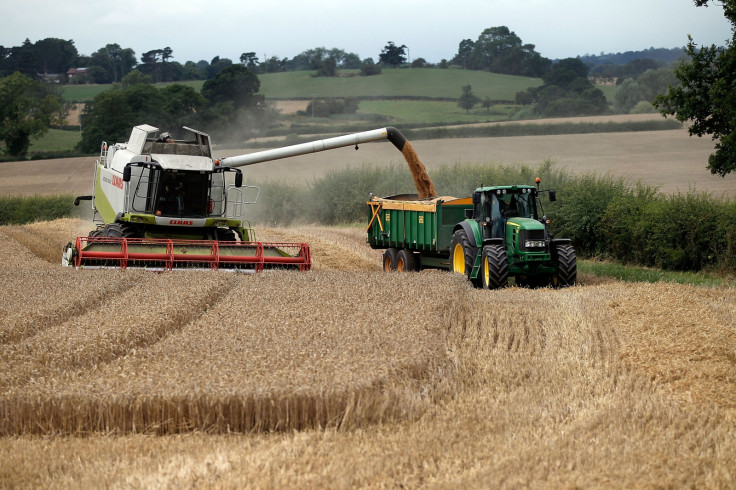Brexit trade deal: Farmland could be turned into meadows after UK leaves the EU
UK farmers will continue to receive current subsidies from the EU until 2024.

British farmers will retain the current level of subsidies they receive from the European Union for five years after Brexit, Michael Gove has said.
In a speech to the Oxford Farming Conference on Thursday (4 January), the Environment Secretary unveiled plans to launch a new system prioritising the environment in 2024, instead of 2022 as was originally planned.
Worth around £3bn (€3.4bn) a year, the current subsidies are based on the land farmers own. Under the new system, they would receive payments for initiatives such as planting wildflower meadows and woods.
"Paying landowners for the amount of agricultural land they have is unjust, inefficient and drives perverse outcomes," Gove said.
"It gives the most from the public purse to those who have the most private wealth.
"After a transition, we will replace the basic payment scheme [the system currently in place] with a system of public money for public goods. The principal public good we will invest in is environmental enhancement."
Some 97% of Britain's wildflower meadows have been destroyed since the Second World War and their loss has led to a sharp decline in the numbers of bees, birds and other fauna.
The government, Gove added, will implement a scheme aimed at supporting almost any landowner in "planting woodland, providing new habitats for wildlife, increasing biodiversity, contributing to improved water quality and returning cultivated land to wildflower meadows or other more natural states".
The Scottish government welcomed the development but warned there were "far too many questions unanswered for any comfort to be taken."
Rural Economy Secretary Fergus Ewing said the impact on rural Scotland would be devastating should support for hill farmers in Scotland under the Less Favoured Area Support Scheme be discontinued.
"While this guarantee [from Michael Gove] provides a degree of certainty and clarity, it does not cover a whole variety of vital support schemes such as for our hill farmers, sheep and beef support, new entrants, forestry and environmental support programmes, which are crucial to ensure the continued economic wellbeing of all of Scotland's rural communities," he said.
Meanwhile, a report from the All-Party Parliamentary Group on Agroecology (AAPG) warned the government will have to ensure future trade deals do not undermine the farming sector by allowing imports of food produced with lower welfare or environmental standards.
"To compete with these lower prices, domestic farmers could seek to tighten their margins and therefore cut corners with regards to environmental regulations," the AAPG said.
"If the UK is unable to protect its farmers from being undermined by lower welfare imports, farmers are likely to resist improvements and may even press for UK standards to be lowered.
"There is a real danger that enhanced compatibility of regulations would make it very difficult for the UK to improve its standards in areas such as animal welfare, food safety and pesticide use and residues."
The warning comes amid concerns that a post-Brexit deal with the US could see chlorine-washed chicken and hormone-fed beef sold in the UK. The majority of growth hormones were banned by the EU in 1988 but the use of some of them remains legal in the US, as is washing chicken carcasses in chlorinated water to kill germs, which the EU outlawed 20 years ago.
However, Gove, a prominent Brexiteer, has already promised the current standards will not be compromised once Britain leaves the European Union.






















